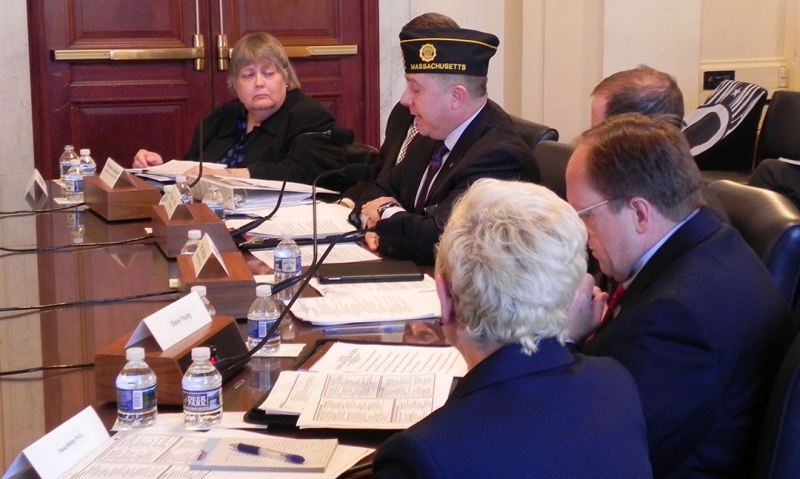
Legion proposes new legislation before the House of Representatives Committee on Veterans' Affairs.
American Legion National Veterans Affairs and Rehabilitation Division Director Louis Celli testified before the U.S. House of Representatives Committee on Veterans’ Affairs on May 2 to propose a new Veterans Appeals Improvement and Modernization Act of 2017.
The proposed bill provides veterans additional options while maintaining the effective dates of original claims. Veterans can elect to have an original decision reviewed through a Difference of Opinion Review (DOOR), which provides an opportunity for a claimant to discuss concerns regarding the original adjudication of a particular issue, or the entire claim, prior to appealing to the Board of Veterans Appeals (BVA). In addition, the administrative actions remove the need for a Notice of Disagreement, a process that took nearly 413 days, according to a report released to the Legion following the end of last fiscal year.
“The American Legion applauds this committee for having the restraint and vision to craft this legislation loosely enough to give the VA enough flexibility to build a new program, as needed,” Celli said. “It isn’t possible to successfully legislate every detail of a program – that’s what regulations are for. Good legislation gives the government the necessary tools and guidance to perform the task, and then charges them with carrying out the intent of Congress.”
Beyond improvements in administrative functions, Celli said the proposed bill enables claimants to select a process other than the standard multi-yearlong backlog. Veterans will be able to elect to have their appeals reviewed more expeditiously by attesting that all information is included within the claim, VA’s records, or submitted with VA Form 9 indicating the intent to have their claims expeditiously forwarded to BVA for review.
Veterans who indicate that they may need additional evidence or time could elect to have their claim reviewed in BVA’s current format, which allows additional evidence to be entered. For veterans who require additional evidence – such as lay statements from friends and families or a private medical examination rebutting VA’s medical examinations – this legislation is a viable alternative to allow the time and opportunity to prove a veteran’s case and secure the benefits they have earned.
“The American Legion recognizes that this is a huge undertaking and that, as with any contract, the agreement is only as good as the people who sign it,” Celli said. “We agree that there is a lot that is not going to be included in statutory language, and that this initiative places a lot of trust and responsibility on VA to do the right thing.”
Recognizing that an increased burden is being placed upon veterans, Celli said VA will ensure they maintain their effective dates even if BVA denies the claim. If a veteran’s appeal is denied by BVA, the veteran can submit new and minimally relevant evidence to reopen the claim at the regional office while holding the original effective date that may have been established long before the second filing for benefits.
“We spend millions of dollars each year defending veterans through the claims and appeals process. Our success rate at the BVA continues to hover around 80 percent,” he said. “The American Legion currently holds power of attorney on more than three-quarters of a million claimants. We recognize the increased burden it can place on veterans, but we also recognize that our approximately 3,000 accredited representatives have the tools to ensure success for the veterans and claimants we represent.”
Celli said the Legion will work tirelessly throughout the year to not only ensure this program is successful, but also help veterans understand the changes in law and how they will be able to succeed with these new changes.
“There are a lot of nuances that aren’t able to be legislated and the VSOs (veterans service organizations) are going to be providing constant feedback as we move forward with appeals modernization,” Celli said. “We believe the architects of this proposal have acted in good faith and we support their efforts to modernize the appeals process for the good of veterans, for the good of the process, and for the good of the American taxpayer.”
- Legislative

